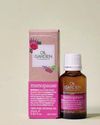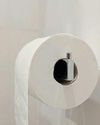
Along with the daily meal, many people are unwittingly serving up small amounts of chemicals and heavy metals leached from cooking appliances, utensils, food containers, wrappings and water pipes. As you clean up and cook, you’re also potentially inhaling toxic vapours from stoves and cleaning products. On the upside, as masters of your own domain, you have the power to transition your kitchens into less toxic zones.
Non-toxic cookware
“An important place to start is by ditching non-stick cookware,” says Jo Immig, coordinator of the National Toxics Network in Australia. This includes non-stick woks, frypans, saucepans and baking ware. During cooking, non-stick particles can be scraped and dislodged by utensils into the food we eat, she warns.
“The term ‘non-stick’ actually covers a broad range of proprietary brand coatings with different formulations, including Teflon®,” Immig explains. Virtually all of these contain numerous chemical ingredients bad for your health. The research reported by the Environmental Working Group (EWG) shows heating Teflon at standard cooking temperatures generates highly toxic gases and particles that can kill household birds. An award-winning 2018 documentary, The Devil We Know, links perfluorooctanoic acid (PFOA) and associated chemicals from Teflon to birth defects, kidney and testicular cancer, ulcerative colitis, thyroid disease, pre-eclampsia, and high cholesterol. A 2011 study in the Journal of Clinical Endocrinology & Metabolism also implicates the chemical in early menopause.
This story is from the Issue 188 edition of WellBeing.
Start your 7-day Magzter GOLD free trial to access thousands of curated premium stories, and 9,000+ magazines and newspapers.
Already a subscriber ? Sign In
This story is from the Issue 188 edition of WellBeing.
Start your 7-day Magzter GOLD free trial to access thousands of curated premium stories, and 9,000+ magazines and newspapers.
Already a subscriber? Sign In

YOGA FOR IMPERFECTION
Life is messy and we all make mistakes, but by embracing imperfection, we can begin to accept all parts of ourselves.

Creating the foundations of ritualist self-care
As a busy mum of a three-year-old and expecting another baby, finding time for self-care often feels like a luxury.

Are you doom spending?
If \"doom spending\" has become your go-to for coping with stress, you could be making withdrawals from not just your bank account, but your health too.

THE POWER OF music
Most of us enjoy music. But science shows music is central to being human and its effect on us is far more astonishing and impactful than we realise. Music is fundamental to life.

SYNTHETIC FOODS
Synthetic, or genetically modified, fake meats and the like attempt to mimic real meat in both looks, taste and texture. But how much do we really know about the production process and how do they affect the environment and our bodies?

Embracing the power of nature
Menopause is more than just a biological change, it represents a significant life stage that can present numerous challenges - from hot flushes and mood swings to fatigue and sleepless nights.

Jan Fran
From a young age, Jan Fran's deep curiosity and keen interest in social issues sparked her journey into the world of journalism. As an accomplished journalist, media commentator and broadcaster, Fran's passion for storytelling has always been driven by a desire to explore, question and shed light on the world around her.

Helping teen girls thrive
Statistics reveal that many more teen girls are struggling with mental health issues. What's going on with them? More importantly, what can we do to help them flourish?

Your ageing eyes
Your eyes work hard for you every waking minute. It is no surprise that how your eyes age will be determined by how you protect them. Eating the right foods can go along way towards ensuring that your eyes stay healthy for a lifetime.

The bottom line
During the Couid pandemic, we were shocked to see people fighting in supermarkets over toilet paper and to see empty shelves that had once held roll after roll. The reasons behind the run for toilet paper during this time reflect the unique place that it holds in our psyche and are deeply rooted in our history.